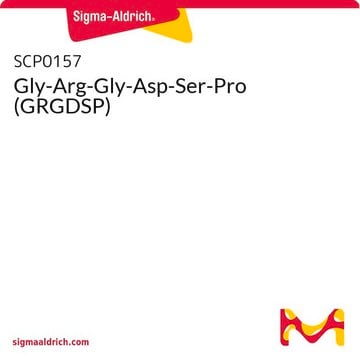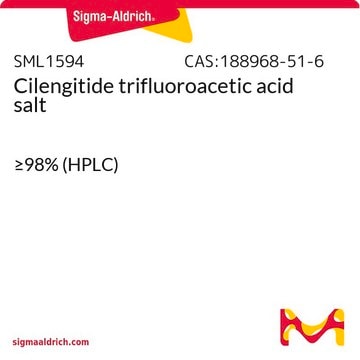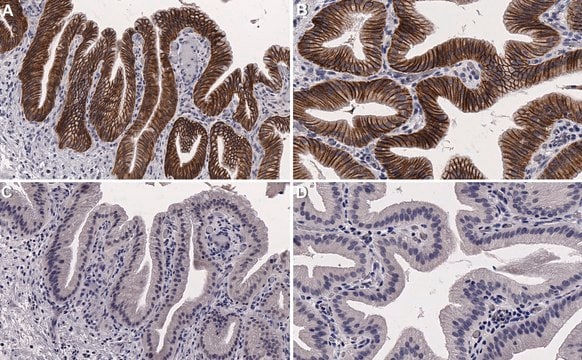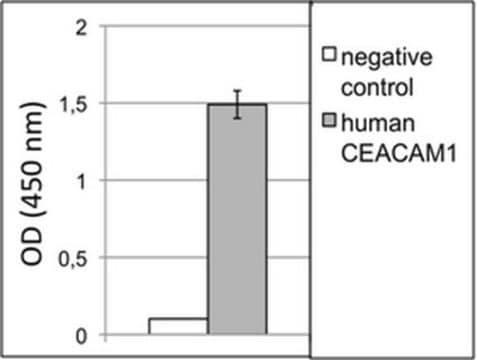MABS2199
Anti-Extrahepatic biliary cells Antibody, clone GB5
Synonym(s):
EHBC;Gallbladder cells
Select a Size
Select a Size
About This Item
Recommended Products
biological source
mouse
Quality Level
antibody form
purified antibody
antibody product type
primary antibodies
clone
GB5, monoclonal
purified by
using protein G
species reactivity
human
packaging
antibody small pack of 100 μg
technique(s)
flow cytometry: suitable
immunofluorescence: suitable
immunohistochemistry: suitable
isotype
IgG1κ
Related Categories
1 of 4
This Item | MABD117 | MABT397 | MABT65 |
|---|---|---|---|
| antibody form purified antibody | antibody form ascites fluid | antibody form purified immunoglobulin | antibody form purified antibody |
| species reactivity human | species reactivity human | species reactivity human | species reactivity human |
| clone GB5, monoclonal | clone 7B5, monoclonal | clone B3-17, monoclonal | clone 4D1/C2, monoclonal |
| storage temp. 2-8°C | storage temp. - | storage temp. - | storage temp. - |
| UniProt accession no. | UniProt accession no. | UniProt accession no. | UniProt accession no. |
General description
Specificity
Immunogen
Application
Evaluated by Immunohistochemistry (Paraffin) in human gallbladder tissue sections.
Immunohistochemistry (Paraffin) Analysis: A 1:250 dilution of this antibody detected Extrahepatic biliary cells in human gallbladder tissue sections.
Tested applications
Immunohistochemistry Applications: A representative lot detected Extrahepatic biliary cells in Immunohistochemistry applications (Galivo, F.H., et al. (2015). Stem Cell Res.15(1):172-81).
Flow Cytometry Analysis: A representative lot detected Extrahepatic biliary cells in Flow Cytometry applications (Galivo, F.H., et al. (2015). Stem Cell Res. 15(1):172-81).
Immunofluorescence Analysis: A representative lot detected Extrahepatic biliary cells in Immunofluorescence applications (Galivo, F.H., et al. (2015). Stem Cell Res. 15(1):172-81).
Note: Actual optimal working dilutions must be determined by end user as specimens, and experimental conditions may vary with the end user
Physical form
Reconstitution
Storage and Stability
Other Notes
Disclaimer
Not finding the right product?
Try our Product Selector Tool.
Storage Class Code
12 - Non Combustible Liquids
WGK
WGK 1
Flash Point(F)
Not applicable
Flash Point(C)
Not applicable
Certificates of Analysis (COA)
Search for Certificates of Analysis (COA) by entering the products Lot/Batch Number. Lot and Batch Numbers can be found on a product’s label following the words ‘Lot’ or ‘Batch’.
Already Own This Product?
Find documentation for the products that you have recently purchased in the Document Library.
Our team of scientists has experience in all areas of research including Life Science, Material Science, Chemical Synthesis, Chromatography, Analytical and many others.
Contact Technical Service











